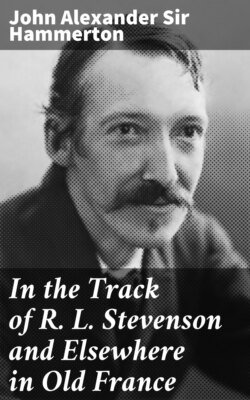Читать книгу In the Track of R. L. Stevenson and Elsewhere in Old France - John Alexander Sir Hammerton - Страница 4
I.
ОглавлениеSomeone has accounted for the charm of story-telling by the suggestion that the natural man imagines himself the hero of the tale he is reading, and squares this action or that with what he would suspect himself of doing in similar circumstances. The romancer who can best beguile his reader into this conceit of mind is likely to be the most popular. It seems to me that with books of travel this mental make-believe must also take place if the reader is to derive the full measure of entertainment from the narrative. With myself, at all events, it is so, and Hazlitt may be authority of sufficient weight to justify the thought that my own experience is not likely to be singular. To me the chief charm in reading a book of travel is this fanciful assumption of the rôle of the traveller; and so far does it condition my reading, that my readiest appetite is for a story of wayfaring in some quarter of the world where I may hope, not unreasonably, to look upon the scenes that have first engaged my mind's eye. Thus the adventures of a Mr. Savage Landor in Thibet, or a Sir Henry Stanley in innermost Africa, have less attraction for me than the narrative of a journey such as Elihu Burritt undertook in his famous walk from London to John o' Groats, or R. L. Stevenson's Travels with a Donkey in the Cevennes. I will grant you that the delicious literary style of Stevenson's book is its potent charm, but I am persuaded that others than myself have had their pleasure in the reading of it sensibly increased by the thought that some day they might witness Nature's originals of the landscapes which the master painter has depicted so deftly. It had long been a dream of mine to track his path through that romantic region of old France; not in the impudently emulative spirit of the throaty tenor who, hearing Mr. Edward Lloyd sing a new song, hastens to the music-seller's, resolved to practise it for his next "musical evening;" not, forsooth, to do again badly what had once been done well; but to travel the ground in the true pilgrim spirit of love for him who
"Here passed one day, nor came again—
A prince among the tribes of men."
Well did I know that many of the places with which I was familiar romantically through Stevenson's witchery of words were drab and dull enough in reality: enough for me that here in his pilgrim way that "blithe and rare spirit" had rested for a little while.
